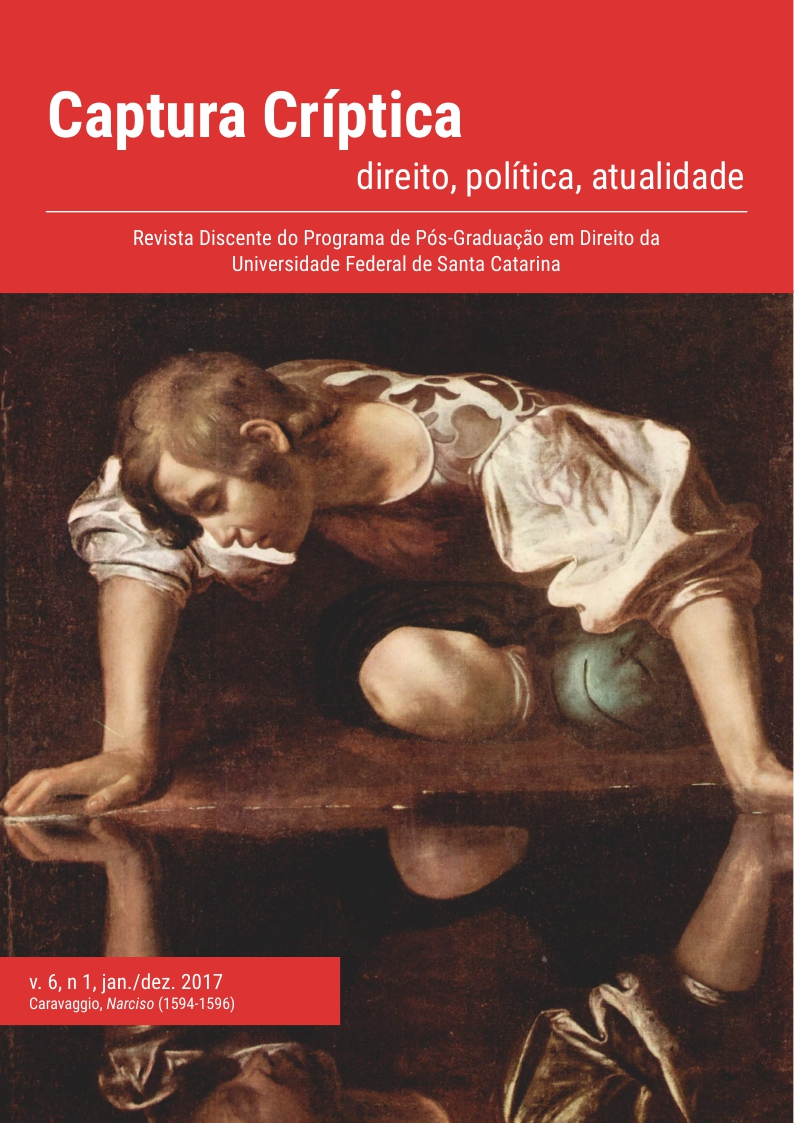“PRISONIZAÇÃO” DAS PERIFERIAS BRASILEIRAS: A CONTRADIÇÃO DE DISCURSOS NA “PACIFICAÇÃO” DAS FAVELAS DO RIO DE JANEIRO / PRISONIZATION IN MARGINALIZED URBAN AREAS IN BRAZIL: THE CONTRADICTION WITHIN THE DISCOURSE OF RIO DE JANEIRO'S PACIFICATION OF FAVELAS
Palavras-chave:
prisonização, favela, UPP, criminologiaResumo
Resumo: O artigo tem como objetivo discutir a teoria da “prisonização”, proposta por Loïq Waquant, e sua representação na realidade brasileira. “Prisonização” indica um crescente entrelaçamento entre a prisão e o gueto (ou áreas urbanas periféricas), fazendo com que as dinâmicas sociais características de um estejam mais presentes no outro. A análise aqui proposta se concentra sobre uma experiência concreta: a política de “pacificação” das favelas do Rio de Janeiro, mais especificamente a instalação de Unidades de Polícia Pacificadora (UPP). Observa-se que esse evento provocou uma significativa mudança de discurso nas ações policiais de combate ao crime, em especial ao tráfico de drogas. A linguagem repressão direta e ostensiva foi aos poucos abrindo espaço para discursos de pacificação. As UPPs foram então concebidas como um primeiro passo para o estabelecimento de uma nova relação entre as favelas e as forças policiais, prevendo ainda uma política continuada de desenvolvimento social. Contudo, na prática, as UPPs ainda mantiveram a prática repressiva, o que resultou na intensificação da vigilância como estratégia de controle social nessas comunidades. Por essa razão, o conceito de prisonização pode ser observado na atuação concreta das UPPs no Rio de Janeiro.
Palavras-chave: prisonização; favela; UPP; criminologia.
Abstract: This article aims to discuss Loïq Wacqant's theory of prisonization and its depiction in the Brazilian context. Prisonization means a growing interlacing between the prison and the ghetto (or marginalized urban areas) environments, which results in the constant interchange of their characteristics social dynamics. The analysis proposed here is focused in one concrete experience: the politics of "pacification" in Rio de Janeiro's favelas, more specifically in the laying of the Unidades de Polícia Pacificadora (Pacifying Police Units) - UPP. One can see that this phenomenon brought a significant change in the policial discourse and actions related to crime fighting, particularly regarding drug traffic. The language based on direct and ostensive repression gradually made way to the pacification discourse. The UPPs were, then conceived as a first step towared the establishment of a new relation between the favelas and the policial forces, the start of a continuous practice of social development. However, in reality, the UPPs mantained the repressive actions, which resulted in the intensifying of surveillance as a strategy of social control in these communities. For that reason, one can observe the prisonization phenomenon in the concrete actions undertaken by UPPs in Rio de Janeiro.
Keywords: prisionization; favela; UPP; criminology.
Downloads
Publicado
Edição
Seção
Licença
Os trabalhos publicados na Revista Captura Críptica estão sob a Licença Creative Commons Attribution-NonCommercial-NoDerivatives 4.0 International.










